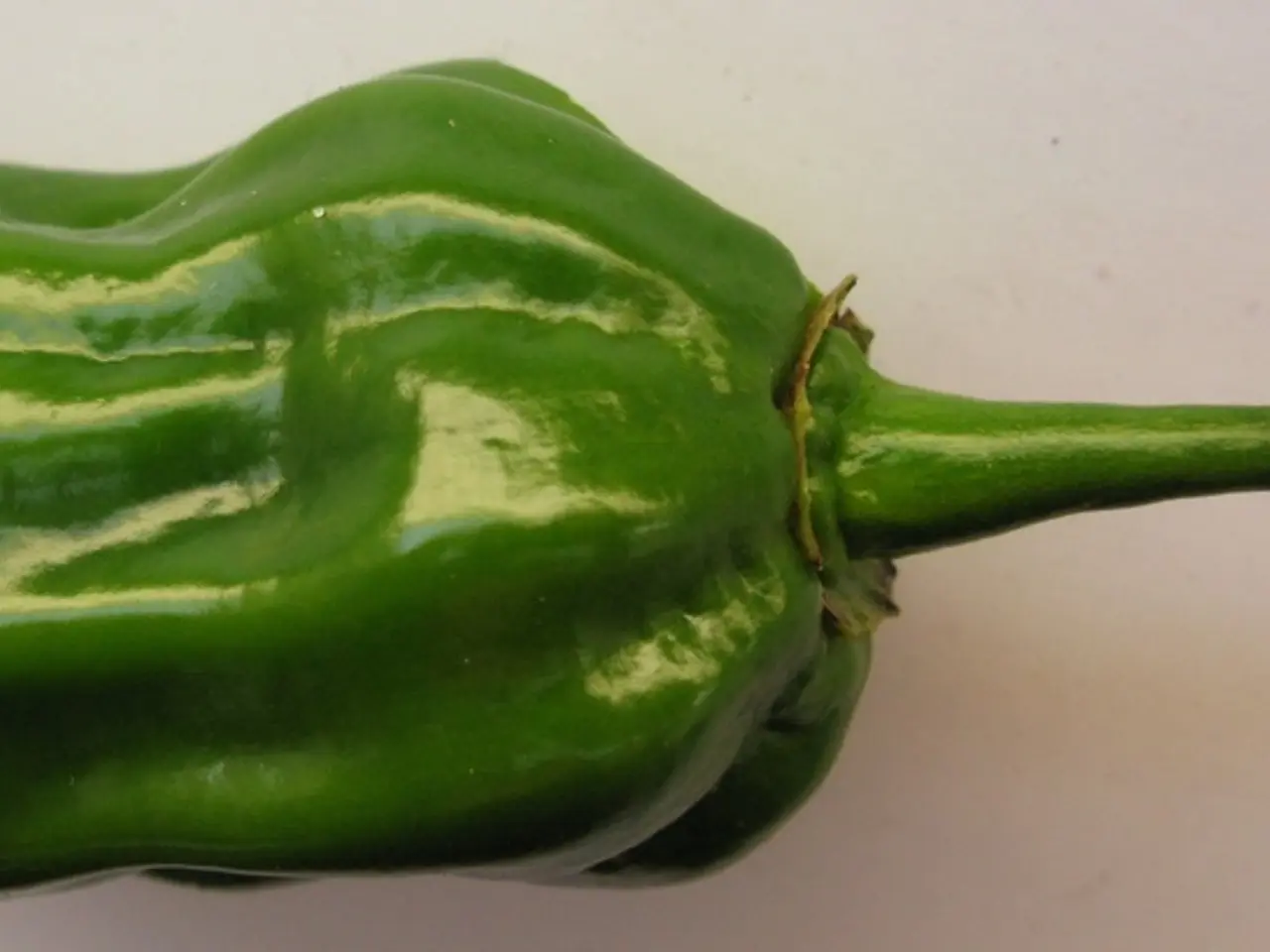Marshmallow Root: Exploring Advantages, Drawbacks, and Applications
Marshmallow root, scientifically known as Althaea officinalis, is a flowering plant that has been used for centuries in traditional medicine for its soothing and healing properties. Recent scientific evidence supports its use in treating various health conditions, primarily due to its high content of mucilage and various bioactive compounds.
One of the most notable benefits of marshmallow root is its ability to alleviate coughs and dryness in the mouth. The mucilage in marshmallow root coats and soothes mucous membranes in the throat, reducing irritation and inflammation, which can help alleviate dry coughs and soothe dryness in the mouth [2][3][5]. Some natural cough syrups and cough drops contain marshmallow root for this reason.
In terms of digestive health, marshmallow root may help protect the mucous lining of the stomach, potentially reducing the risk of certain ulcers, including NSAID-associated ulcers. Modern research shows that marshmallow root forms a protective mucilage barrier about 100 micrometers thick on the stomach and intestinal lining. This physical shield prevents stomach acid from irritating and damaging tissue, potentially reducing ulcer formation by up to 60% [1][2][3]. The flavonoids in marshmallow root, such as isoscutellarein and luteolin, further inhibit inflammatory signaling pathways, reducing pro-inflammatory cytokines by up to 40%, addressing the cellular inflammation that contributes to ulcers and gut irritation [1][2][3].
Marshmallow root may also aid in wound healing by promoting tissue regeneration and fighting bacterial infections. Its mucilage and emollient properties help soothe minor burns, insect bites, and other skin irritations by supporting the body’s natural healing response and moisturizing irritated tissues [3][5].
While allergic reactions to marshmallow root are rare, a skin test should be performed before using it to check for potential allergies. It is important to note that most studies emphasize the importance of consistent and repeated use to sustain the protective mucilage layer and achieve long-term benefits, especially for digestive conditions [1][3].
In summary, the scientific basis for marshmallow root’s benefits lies in the formation of a protective mucilage barrier, anti-inflammatory effects from flavonoid compounds, and traditional and topical applications that leverage its soothing and moisturizing properties to promote healing of skin lesions. While these effects are promising and supported by emerging research, further high-quality clinical trials would strengthen the evidence base, but current mechanistic and preliminary clinical data provide a sound rationale for marshmallow root’s use in these conditions.
Marshmallow root can be consumed in various forms, such as tea, lozenges, or syrup, or applied topically as a skin salve. To make marshmallow root tea, pour boiling water over dried root and steep for 5 to 10 minutes, or use ready-made tea bags. Powdered marshmallow root may be more effective than tea or tincture in coating the throat. To create a skin salve, combine cooled marshmallow tea or liquid marshmallow extract with coconut oil.
In conclusion, marshmallow root is a natural remedy with multiple therapeutic benefits, making it a valuable addition to your health and wellness routine.
- Marshmallow root, with its soothing and healing properties, has been used for centuries in traditional medicine.
- Recent scientific evidence supports its use in treating various health conditions.
- One of the most notable benefits is its ability to alleviate coughs and dryness in the mouth.
- The mucilage in marshmallow root coats and soothes mucous membranes in the throat.
- This can help alleviate dry coughs and soothe dryness in the mouth, as seen in some natural cough syrups and cough drops.
- In terms of digestive health, marshmallow root may help protect the mucous lining of the stomach.
- This potential reduction in the risk of ulcers includes NSAID-associated ulcers.
- Modern research shows that marshmallow root forms a protective mucilage barrier about 100 micrometers thick on the stomach and intestinal lining.
- This physical shield prevents stomach acid from irritating and damaging tissue.
- The flavonoids in marshmallow root further inhibit inflammatory signaling pathways.
- These compounds reduce pro-inflammatory cytokines by up to 40%, addressing the cellular inflammation that contributes to ulcers and gut irritation.
- Marshmallow root may also aid in wound healing by promoting tissue regeneration.
- Its mucilage and emollient properties help soothe minor burns, insect bites, and other skin irritations.
- The ability to soothe irritated tissues supports the body’s natural healing response.
- However, a skin test should be performed before using marshmallow root to check for potential allergies.
- Most studies emphasize the importance of consistent and repeated use for sustained benefits, especially for digestive conditions.
- The scientific basis for marshmallow root’s benefits lies in the formation of a protective mucilage barrier, anti-inflammatory effects from flavonoid compounds, and traditional and topical applications.
- While these effects are promising and supported by emerging research, further high-quality clinical trials would strengthen the evidence base.
- Marshmallow root can be consumed in various forms, such as tea, lozenges, or syrup.
- To make marshmallow root tea, pour boiling water over dried root and steep for 5 to 10 minutes.
- Powdered marshmallow root may be more effective in coating the throat than tea or tincture.
- To create a skin salve, combine cooled marshmallow tea or liquid marshmallow extract with coconut oil.
- Marshmallow root is a natural remedy with therapeutic benefits, making it a valuable addition to your health and wellness routine, including dermatitis, atopic, hepatitis, diabetes, disease, macular, crohns, bipolar, HIV, depression, type, colitis, ulcerative, AQ, Alzheimer's, science, supplements, sleep, workplace wellness, medical conditions, chronic diseases, respiratory conditions, eye health, hearing, health and wellness, fitness and exercise, mental health, skin care, therapies and treatments, nutrition, CBD, skin conditions, lifestyle, fashion and beauty, food and drink, home and garden, relationships, travel, cars, education and self-development, personal growth, shopping, career development, and learning.






